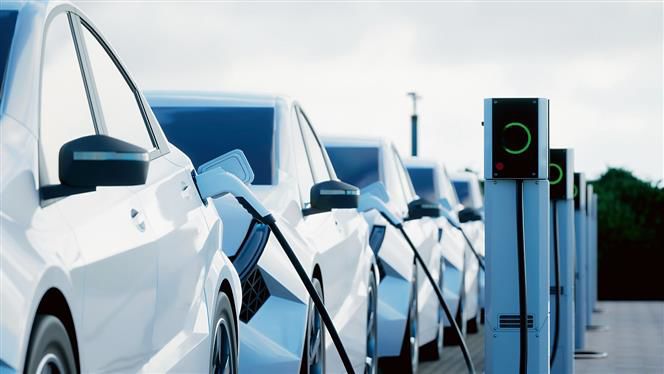After duty cut on minerals, EV industry now bats for lower GST
Vijay C Roy
New Delhi, July 24
Union Finance Minister Nirmala Sitharaman’s decision to waive import duties on critical minerals including lithium, copper and cobalt will reduce battery manufacturing costs, making electric vehicles (EVs) more affordable and attractive.
It will also enhance lithium-ion battery production in India, supporting localisation efforts and advancing the sector’s growth. Hailing the move, the industry has sought reduction in GST on all components of EVs to 5 per cent which will make electric vehicles more pocket-friendly and increase adoption.
Targeting 30% sales by 2030
…These will also support in setting the tone for the ambitious target of 30% EV sales by 2030. —Samarth Kholkar, CEO & Co-founder, Blive
The battery constitutes 50 per cent of the total cost of the EV. So if the battery cost is lower, the cost of the vehicle will come down. But the battery cost can be reduced only if it is localised.
Currently, the cost of the battery is $140-150 per kWh (kilowatt hour), which is likely to come down to $90-100 kWh in the near future with more lithium mines becoming operational soon.
“During Union Budget 2024, the Finance Minister’s decision to waive import duties on critical minerals, including lithium, copper, and cobalt, is a step in the right direction for the EV industry. This move will reduce battery manufacturing costs, making EVs more affordable and attractive. It will also enhance lithium-ion battery production in India, supporting localisation efforts and advancing the sector’s growth,” said Rajeev Chaba, CEO Emeritus, JSW MG Motor India (P) Ltd.
According to analysts, the 2024 Union Budget has blown the bugle for India’s EV and last mile logistics sectors. “The waiving of import duties and the outlay of Rs 26,000 crore for road connectivity projects will further support the adoption of EV for last mile revolution. These will also support in setting the tone for the ambitious target of 30 per cent EV sales by 2030,”said Samarth Kholkar, CEO & Co-Founder, BLive.
This optimism is further fuelled by the abolishing of angel tax on all classes of investors, putting that extra zip in the start-up ecosystem. The move is expected to reduce the financial and regulatory burden on start-ups substantially, encouraging more angel investors to fund innovative ventures in the EV and logistics space.
The industry believes much bolder steps are now needed. Bringing down GST on all components of EVs to 5 per cent will make electric vehicles more pocket-friendly and increase adoption. Further, charging and battery swapping infrastructure must be expanded to eliminate range anxiety and provide seamless service to users.









